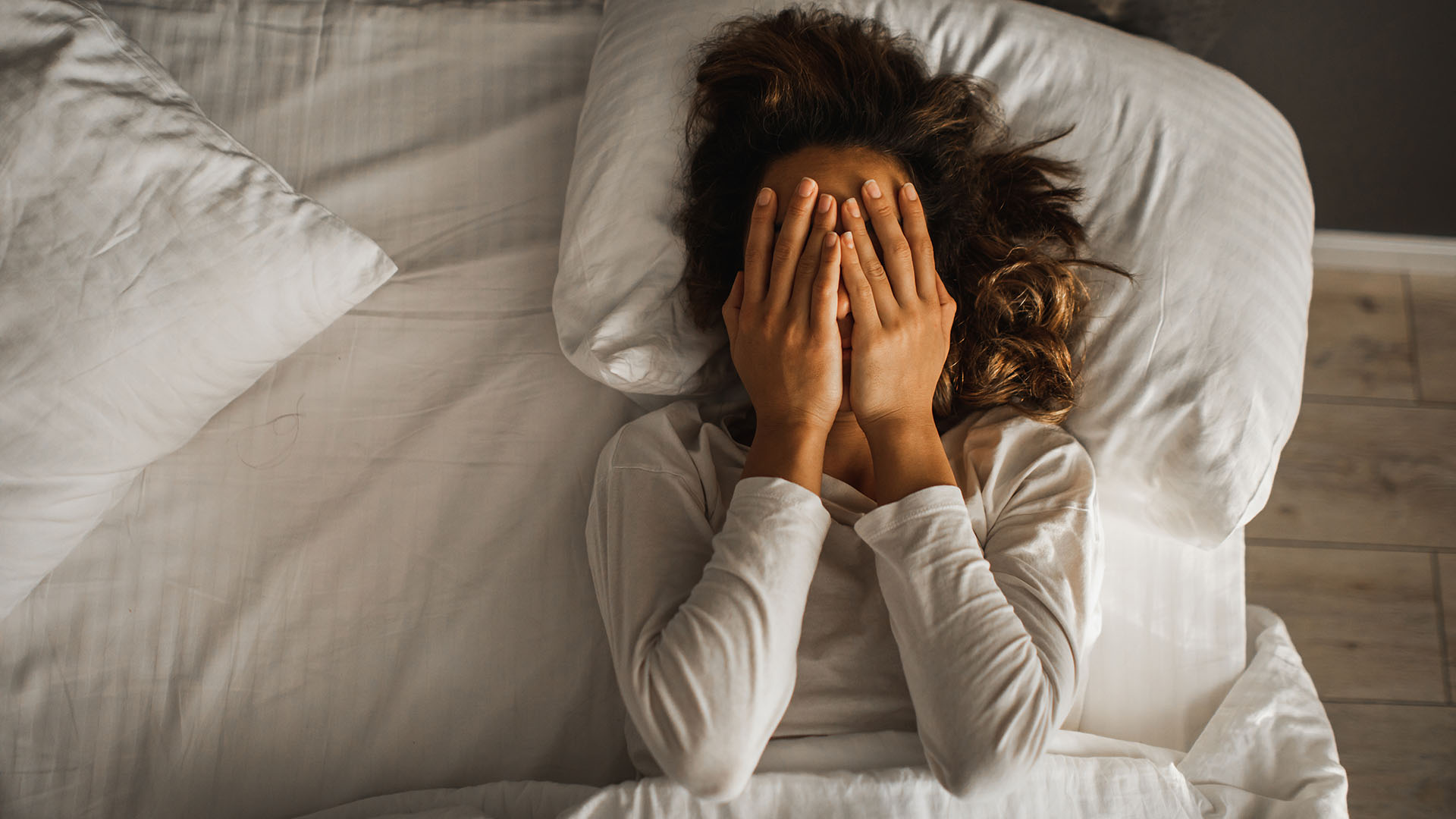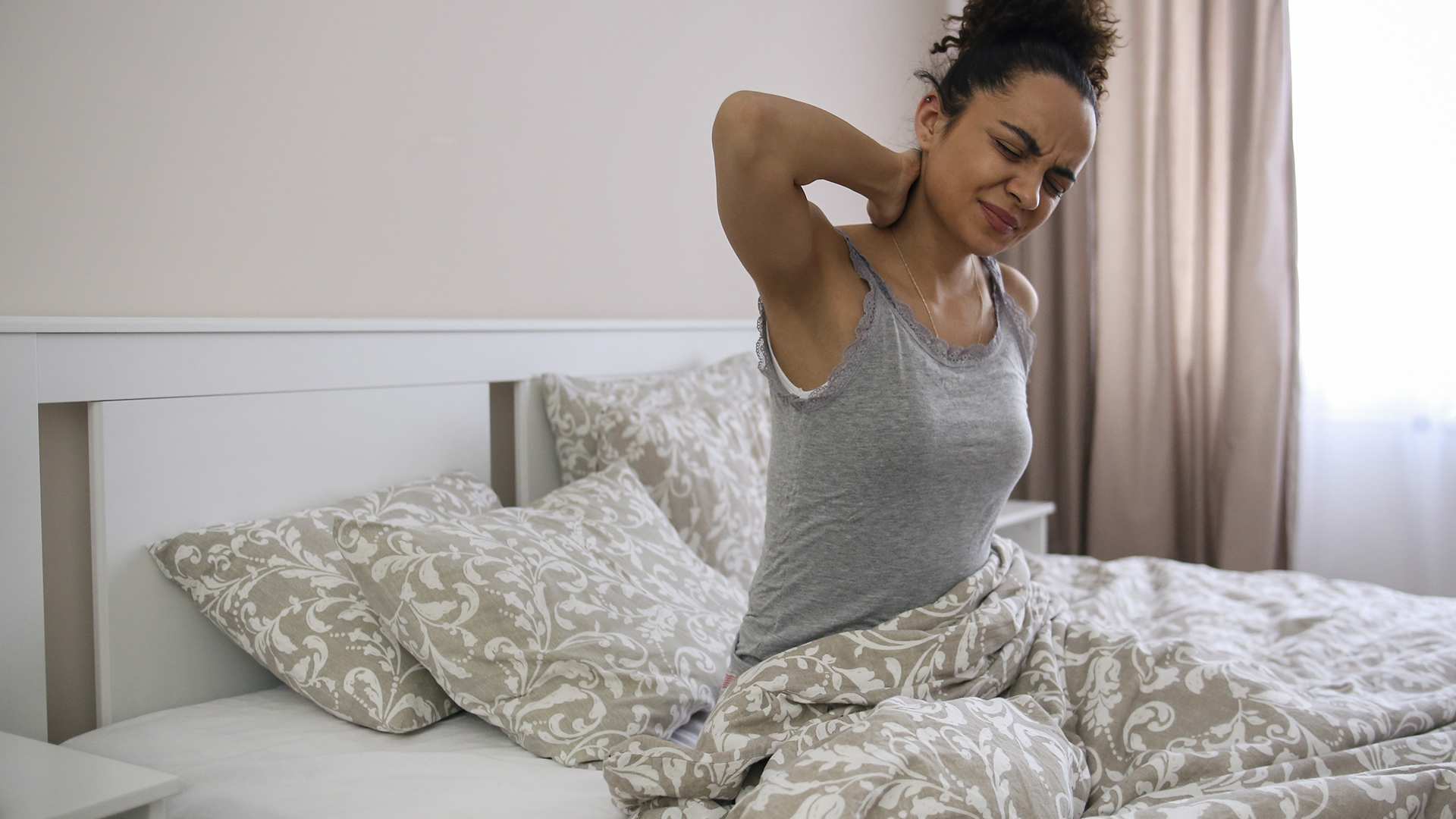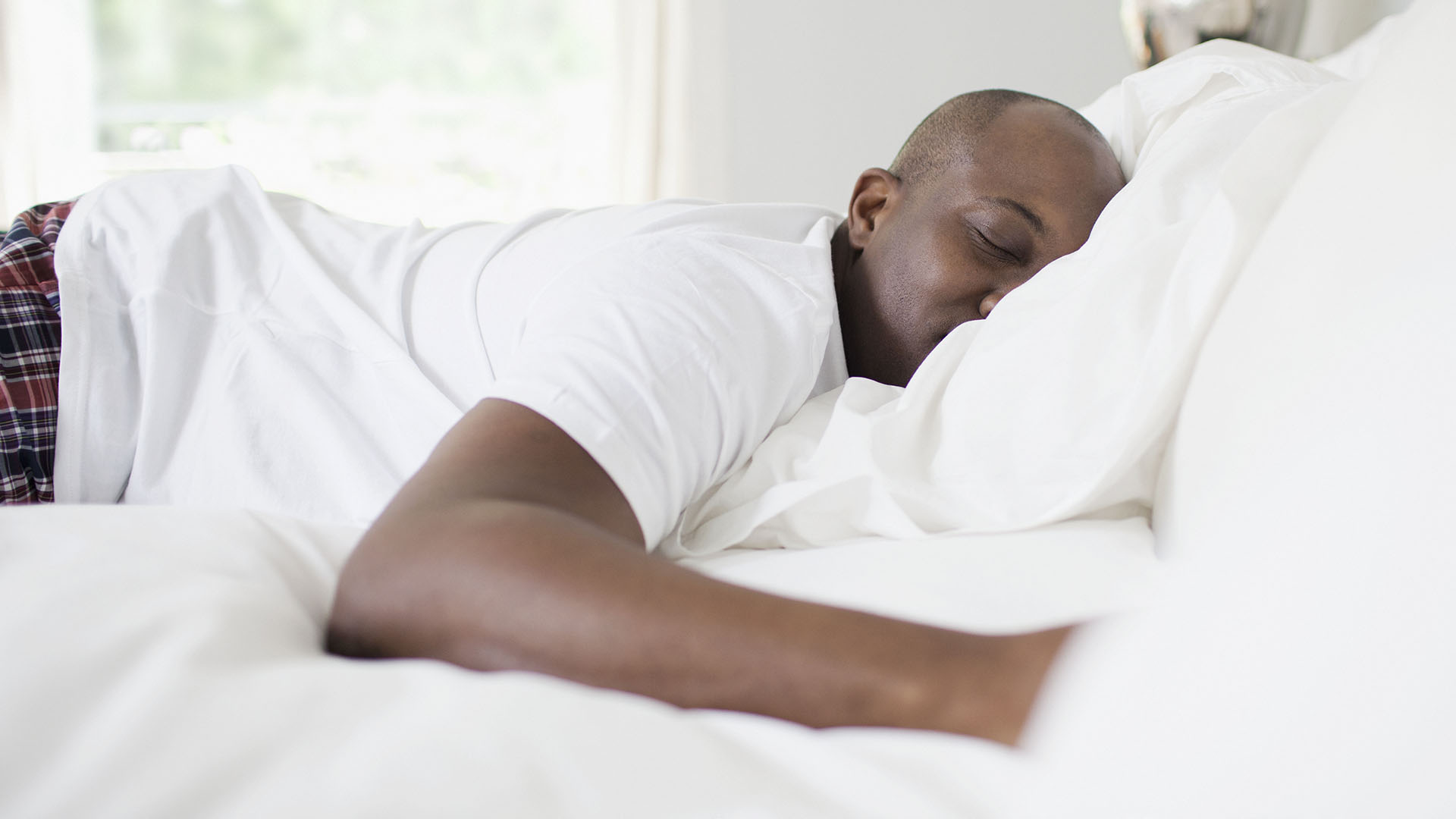7 signs your mattress isn't supporting you properly
Is the wrong mattress causing your bad sleep? We take a look

Sign up for breaking news, reviews, opinion, top tech deals, and more.
You are now subscribed
Your newsletter sign-up was successful
There's a reason why Goldilocks has to try three beds before she can find one comfortable enough to fall asleep on: mattresses are a personal choice. The best mattress for a fully grown bear isn't the same one a small girl would appreciate, and lightweight side sleeper won't choose the same bed as a heavier back sleeper.
It's important that your mattress suits your sleep style and build. So, if you've tried all the sleep hacks, you've perfected your bedtime routine, and you still aren't sleeping right, it might be that your bed isn't providing the support you need. That means it's time for a mattress upgrade.
Unlike Goldilocks, we can't just jump across to a new mattress when the current one isn't working. Before you commit to buying a new bed, you want to know that your mattress really is to blame for your disturbed sleep. In this guide, we'll explore how to tell if your mattress isn't supporting you properly (plus some advice on what to look for if you do decide to upgrade).
7 signs your mattress isn't supporitng you
1. You struggle to fall asleep
You've followed your bedtime routine, you're feeling tired, and now you're tucked up and ready to sleep. And yet, it's just not happening. No matter how much you toss and turn, you can't drift off. While we all go through this from time to time, if you're regularly lying awake, your mattress probably isn't providing the support you need.

Before you replace your mattress, make sure bad sleep hygiene isn't to blame for your disturbed nights. Consider if your diet or wind-down routine might be keeping you up, and work to create a healthier bedtime. If that doesn't help, then it might be time to replace your mattress.
2. You wake up tired
Consistently waking up tired even after you've got your full eight hours can be a sign that your mattress isn't supporting a healthy, refreshing sleep. Are your sheets all twisted and your blankets on the floor? You might have spent the night trying to find a comfortable position to sleep in, only the mattress couldn't provide one.
When this happens, it doesn't matter how many hours you get. You're never going to feel properly rested, because your body isn't enjoying the kind of sleep it really needs. The right mattress should support your body so you can fall into a deep, consistent sleep cycle, and wake up ready for the day.
Sign up for breaking news, reviews, opinion, top tech deals, and more.
3. You're aching in the morning
Morning aches and pains can be a sign of aging (for both you and your mattress, sorry), but it's sometimes the result of a bad sleep surface. And even a premium mattress can be a bad sleep surface if it doesn't suit the position you lie in.

Back and stomach sleepers should look for firmer mattresses that help keep the hips and spine aligned, while the best mattress firmness for side sleepers tends to be a little softer with ample cushioning at the pressure points (where your body pushes against the mattress). The best position for sleeping is generally considered to be either a stacked side position or an aligned back sleeping position. No matter how you drift off, make sure your mattress suits your sleep style.
4. You struggle to move in bed
A softer sleep surface will mold itself to your body, something we often refer to as a mattress 'hug'. It's a common feature of the best memory foam mattresses, and this soft cushioning can be preferable for side sleepers. However, sink in too deep, and you might start to feel like you're trapped in a mattress. Soft beds can be supportive, but if your mattress is making it impossible to move, then it might not be providing your spine with a stable base.
5. Or you move around too much
Mattress response refers to how quickly the mattress surface moves when you move. Firmer beds tend to have a faster response, so when you toss in bed, the mattress quickly adapts to the changing position. Softer beds have a slower response, holding onto the shape you were in before gradually adjusting to match your new posture.

If you like to stay in one position during the night, a bouncy bed might make it difficult to achieve a restful sleep. They can also be a problem if you share a bed; mattresses with a quicker response typically have worse motion isolation, meaning when your partner moves, you can feel it on your side of the bed.
6. You feel like you're sinking through the bed
If it feels like you've sunk through all the layers of cushioning and hit the bed frame below, you're not getting the support you need from your mattress. This is often the result of age – we recommend replacing your mattress every seven to 10 years – but it can also be a sign that the basic build isn't right for you.
Body type plays a big role in determining in how supportive a mattress is. Those with heavier bodies typically need a firmer surface and a denser build, to create that feeling of a supportive base during sleep.

This can be a big issue with cheaper mattress models, especially those that lack depth. We recommend buying a mattress that measures at least 10 inches high, to ensure there's ample support for an adult body.
7. Or like you're lying on a wooden board
While a too soft mattress can feel like you've sunk through the cushioning, a mattress that's too firm is akin to lying directly on the floor. Even a firm mattress should have some level of cushioning at the pressure points. If you think you'd be better off sleeping on a wooden board, then it's time to replace your mattress with something a little more forgiving.

Ruth is TechRadar’s Sleep Writer. She’s here to help you find the perfect sleep setup for your budget and personal preferences. As well as keeping a keen eye on everything that’s going on in the world of mattresses, she regularly speaks to experts to help you learn how to improve your sleep habits, whether that’s by debunking sleep myths or explaining the science behind it all. Prior to joining the TechRadar team, she wrote features and product guides for new parents hoping to get a decent night's sleep, as well as writing for a variety of online spaces.